Responsible Dog Ownership Day
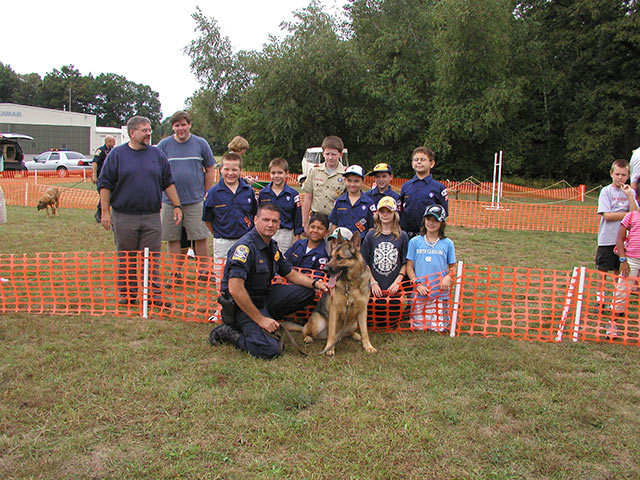
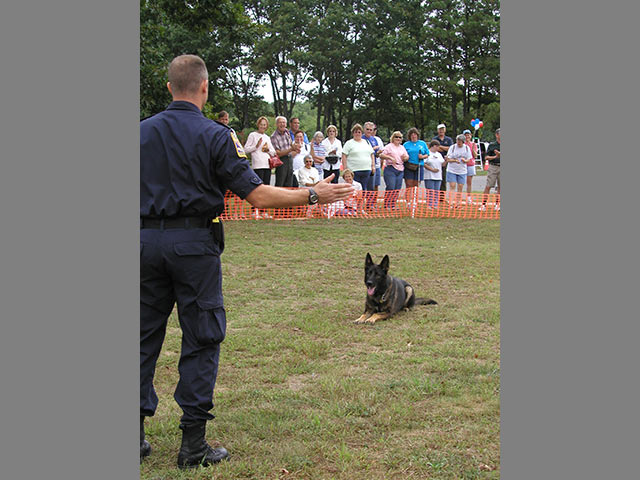
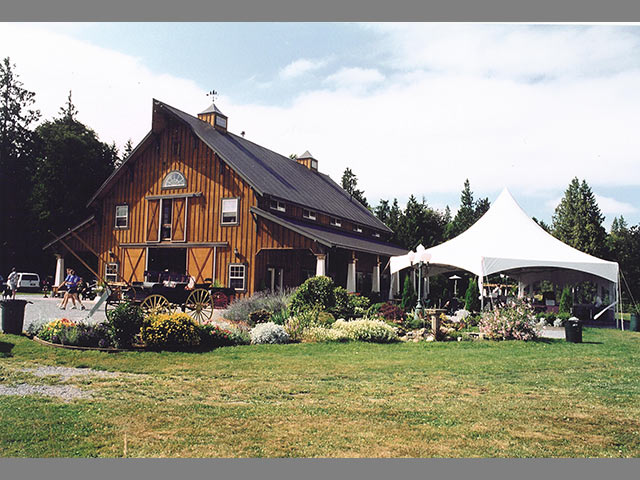
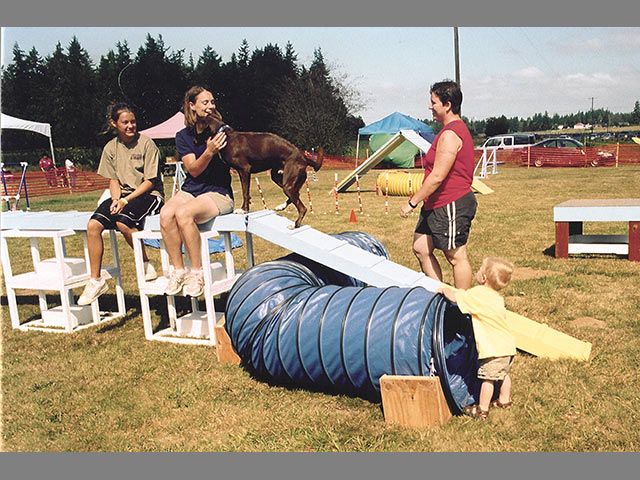
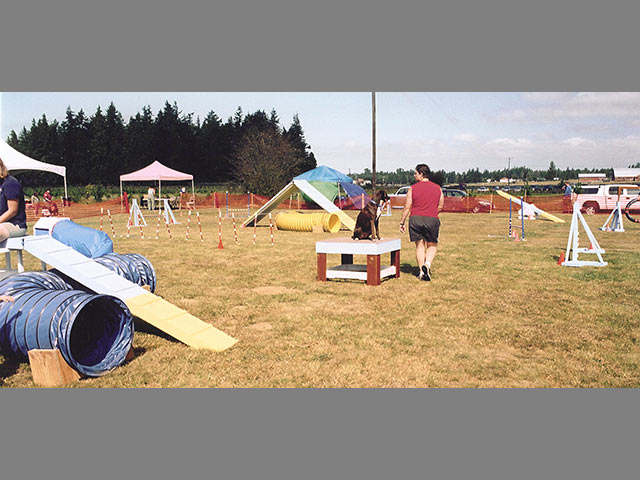
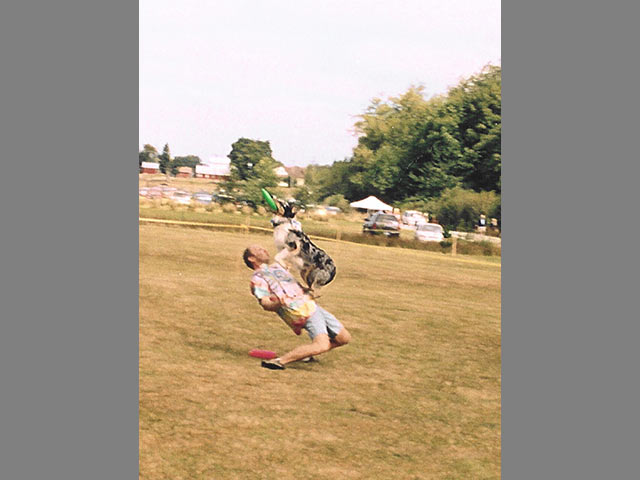
Lisa Peterson, director of club education at the AKC, the New York office in charge of RDOD, says she and her staff provide leadership. "We have a resource kit, with different tools you can use. There are binders showing you how to reach out to the media to get coverage for your event. There are also brochures and give-aways, and a lot of other resources to help you put on a successful event." Each local club can continue doing any educational activities they have done before, and add RDOD events to their roster. For clubs that have never put on an educational event, this can be the inspiration for their first one. Ms. Peterson says RDOD emphasizes that responsibility is not just a chore. "We want to show people that, yes, it is a commitment to train a dog and be responsible. But when you do that you create the relationship and the bond you want. Your dog is more of a joy to live with. You can have the perfect pet."
Daisy Okas, co-creator of the RDOD concept, says the national AKC organization also gains something. "We do educational work all year, but bringing it together under Responsible Dog Ownership Day gives focus and energy. We have 4,500 member or affiliate clubs. So this is a wonderful way for us to reach more people." Ms. Okas reports that the RDOD concept is working very well, with the number of participants growing from 200 in 2003 to about 400 in 2005. Ms. Okas says that with an expanding dog-owning public, education is becoming ever more important. "It's our job to tell people about the responsibility you take on when becoming a dog owner. Everything from spaying and neutering, nutrition, taking your dog to the vet, local leash laws, good citizenship, and teaching your kids how to behave around dogs."
RDOD events, which take place mostly in August and September each year, are designed to draw full representation from the fancy. "All groups that deal with dogs, not just licensed breed clubs, can sponsor their own RDOD event," Ms. Peterson says. Across the country, police departments, dog-training facilities, guide-dog associations, private enterprises, as well as breed clubs have all become involved in RDOD.
Janice Anderson, co-owner of Anderson Acres, a pet-care facility in Bakersfield, California, organized her third RDOD event to meet the complex needs of the urban and rural populations that comprise the Bakersfield community. "People in the rural areas don't always vaccinate and license dogs as they're supposed to." With an inviting, non-threatening event, she was successful at attracting all populations. "By having everyone come out, we get to see who they are and talk to them about what's best for their dogs."
In many communities, just a few instances of aggressive dogs or inconsiderate behavior in public spaces can lead to laws that limit all dog owners' rights. Ms. Anderson says RDOD helps solve that problem. "Our mantra is 'educate, don't legislate.' These kinds of events help us get to people before anything unfortunate happens. We can make it so legislation is not even necessary." As proof that the RDOD concept is making a difference, Ms. Anderson says this year's Bakersfield event caught the eye of state and local leaders. "Our mayor made a proclamation about responsible dog ownership, and so did our county supervisors. We also received support letters from Governor Schwartzenegger and our assemblymen. They all feel that this is important for the community."
Terry Foley and Judy Sabo run the K9 Academy Training Facility in Wayne, Michigan, which prepares dogs for police work. As a police officer, Mr. Foley wants to see fewer dog-related incidents in his community, which he knows are linked to education about dog ownership and knowing how to behave around other people's dogs. At the K9 Academy's 2005 RDOD, their first, Mr. Foley showed people what his police dogs can do. "After the demonstration, we had a fifteen-minute class, where we brought out the police dogs and showed kids how to approach a dog, how not to approach a dog. Because they were physically doing it, not just being told, the youngsters really understood."
Education, especially when we are talking about dogs, is also entertaining. Ms. Anderson, in Bakersfield, says, "We make it enjoyable. There was a fashion show for the best-dressed dog, which really brings people out. The competitors were very serious about it! Following that, we had agility demonstrations." Loosened up a bit, people then went to have their dogs tested for Canine Good Citizenship certification. When their dogs pass the test, owners feel pretty good and they start thinking that their wonderful companion might just be able to run and jump through that agility course. Next thing you know, Ms. Anderson says, they are signing up for agility classes.
Liz Johnson, from the Flatirons Kennel Club, did her third RDOD event in Longmont, Colorado. To get people warmed up, there was a contest for best dog trick. "People of all ages went out there and showed off. People came to the RDOD with no intention of having their dog do tricks. But we would urge them. We'd say, 'Can your dog shake hands?' Then we'd tell them, 'Go out there and show us. Your dog could win a toy.' They'd do it, and you could see how proud they were. That was great." This might sound like simple amusement, but Ms. Anderson and Ms. Johnson both agree that it fits with the goals of responsible dog ownership and education. "It is all about people getting their dogs to interact with them and listen to them," Ms. Johnson says. "It shows people their dogs are capable of a lot more than they might realize. It gets people wondering what else their dog can do." In turn, owners start asking what else people should do.
Lisa Hegland, who works for the Cooper & Cadie Foundation in Stanwood, Washington, held her second RDOD this year. The headline-grabber was a fine-art exhibit, called Pouché, in what Ms. Hegland describes as "a million-dollar barn." Local artists were commissioned to create paintings, sculptures, glasswork, and metalwork. "People who came to the show were so excited, it was just spectacular," Hegland reports. They sold several pieces, with proceeds going to low-income families to cover spay and neuter services.
The theme of Cooper & Cadie's RDOD was, "Is your dog suffering from BDS — Bored-Dog Syndrome?" Ms. Hegland and her staff offered creative high-energy antidotes to the problem, such as agility, flyball, rally, and Frisbee-catching contests. As attendees in Stanwood watched the experts running the agility course, Hegland says, they realized that those dogs are not so different from their own. "The agility dogs are yappers, they're noisy and crazy, but they also do a focused task." Attendees were then invited into the ring. "We had a trainer take people and dogs through an agility course," Hegland says. "Everyone was really excited. They just clicked with this idea. You don't have to have a pure-bred, or a specially trained dog. A lot of people don't realize this."
Ms. Anderson, from Bakersfield, says RDOD can also be the perfect place to find a new pet. "People can pick a dog, then walk right over to a vet at the show and have the dog checked out. Then they can go over to our rabies clinic." Lisa Hegland says her Stanwood event had a similar setup. "Right on the spot, people can have their dog's health and temperament evaluated. But the great thing is, this was not planned. It just developed right at the show, because the vet and the shelter happened to be in the same place."
Elizabeth Stanney, who helps run the Master Peace Dog Training School in Franklin, Massachusetts, said her organization does not have the resources for an independent RDOD. Instead, Master Peace set up booths at Franklin's annual Fall Harvest Festival. "It was a day for everything town-related. People were out enjoying themselves, relaxed. As they walked by, we would ask them if they have a dog. If they said yes, we'd invite them into our booth and share the information we had. If they didn't have a dog, we'd ask if they're thinking of getting one, or if they knew anyone who's thinking of getting one. Almost everyone had something to talk to us about."
Ms. Stanney says Master Peace's decision seemed like a compromise at first, but ended up being better than having their own RDOD. "If we held an event at our training facility, we would only see people already thinking of pet health, safety, and responsible ownership. But we got to speak with people who hadn't thought of it before, people we would never have reached. At the Festival, they aren't expecting it, and we can kind of sneak up on them with dog information." It worked so well, Master Peace is planning to do the same thing again next year.
Lisa Johnson says RDOD attendees have been very enthusiastic. "Lots of people said, 'Please tell us when this will take place again.' It's a lot of work putting it together. But by the second or third year, people start to expect it. If you're consistent, more and more people in the community talk about it." Ms. Anderson is thinking beyond a single event. "RDOD can help our community with a lot of things with animal ownership. This will help us have friendlier animal control. Maybe we can get low-cost spay and neuter services. Maybe we could get a permanent educational facility with on-site vets where people could come and learn. It allows us to have big plans."
